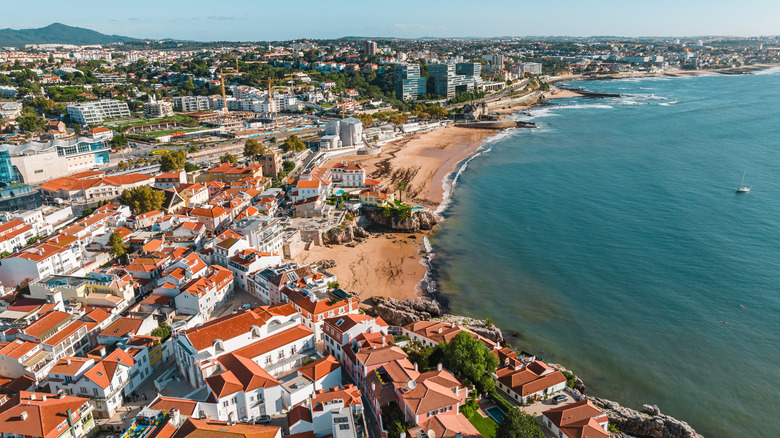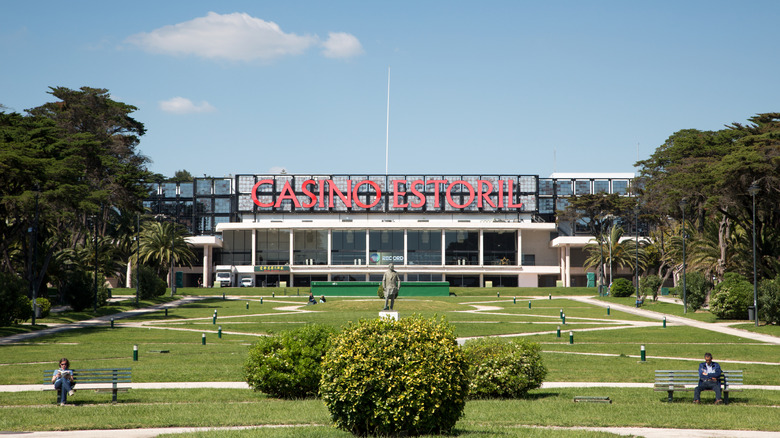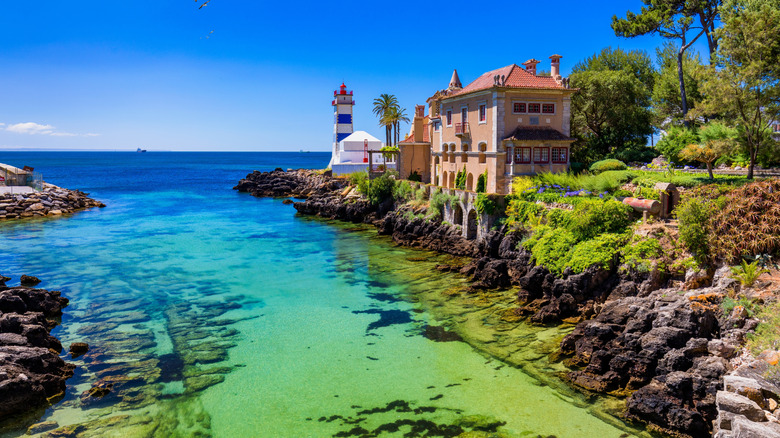Tucked away on the sunny shores of the Portuguese Riviera, just a 30-minute drive from Lisbon (the capital city considered one of the world’s best foodie destinations), the unsuspecting town of Estoril is home to one of Europe’s biggest casinos. Casino Estoril and the Palacio Estoril hotel share a storied wartime legacy, serving as a hub for exiled European royalty and spies, and for famously inspiring the plot of the James Bond series. Today, attention has moved away from the casino and towards the beach, particularly the shores between Estoril and Cascais. With whispers of aristocratic heritage, these popular beach towns are oozing with old-school charm and glamor.
Cast your mind back to a time when Europe was rattled by war, food rations were grim, and uncertainty hung thick in the air. While bombs fell and borders shifted, Portugal managed to maintain a neutral stance, thanks to its convenient far-west location. As the continent reshaped itself, a few lucky royals and aristocrats were able to pack up their gems and gowns and head for the protected Portuguese coastline. Towns like Estoril and Cascais, with their year-round sunny microclimate, became a sanctuary for the exiled and the privileged, including King Umberto II of Italy, the Count of Barcelona, and Carol II of Romania.
With the arrival of the rich and famous, the development of grand mansions, a bustling beachfront promenade, and a high-end casino followed. What was once a humble local fishing village became one of the world’s most historic resort towns. Almost a century later, Estoril is still just as glamorous and charming.
Casino Estoril is one of Europe’s oldest and largest casinos
Casino Estoril is Portugal’s answer to Monaco’s Casino de Monte Carlo. Its legacy dates back to 1931, when it became the centerpiece of Estoril just after the height of the Roaring 20s. When World War II broke out a few years later, the region became a hideout for Europe’s royalty and wealthy exiles, who were no longer safe in their home countries.
Once upon a time, casinos were exclusive havens of wealth. With formal dress codes and free-flowing cocktails, they were a place where status and social standing were secured. Like many of the world’s greatest casinos, Casino Estoril has lost much of its old-school glamor to the world of online gambling. On top of this, people are more aware of the financial and psychological risks of gambling addictions today, with gambling viewed more as a vice than the glamorous activity it once was.
Still, Casino Estoril has managed to progress with the times, updating its facilities and offerings to reflect the needs of the modern clientele. Instead of just slot machines and poker tables, the casino has become an inclusive entertainment and arts complex. It’s home to an auditorium that can accommodate 350 guests for work events or small performances, as well as a larger theater that hosts rotating shows throughout the year. Most performances take place from Thursday through Sunday, depending on the schedule. Among four bars and two restaurants, Mandarim is a Cantonese restaurant that has been praised as one of the world’s best. The casino even has an art gallery, with rotating exhibits. The casino is free to visit for those over the age of 18.
Spend a day exploring the coastline of Estoril and Cascais
Everything you need to know about getting to Estoril
A key reason behind Estoril’s popularity is its close proximity to Lisbon. Located just over 15 miles from Portugal’s capital city, the journey by car takes only 25 to 35 minutes driving along either the inland A5 highway or hugging the coastline along the N6. Trains depart from Cais do Sodré in central Lisbon every 20 minutes, traveling to Estoril and Cascais in just 36 minutes with no transfers. The Casino Estoril gardens are located right in front of the Estoril train station.
Comboios de Portugal and Metro Lisboa offer tourists discounted travel cards for train rides between Lisbon and Cascais. For example, if you purchase the Navegante Occasional Card for €0.50, you can enjoy one-day tickets for €6.50 or three-day tickets for €14.00. This ticket also entitles you to travel to the Pena National Palace in Sintra.
From the Humberto Delgado Airport (LIS), you’ll need to catch two separate metro trains into the city and hop on the same train at Cais do Sodré. The AeroBus Line 1 is a direct option, priced at €4. Door to door, the trip should take an hour and a half. Transport in and around the city is typically safe and efficient, which is a good thing, considering Lisbon ranks as one of the least walkable cities in Europe.





